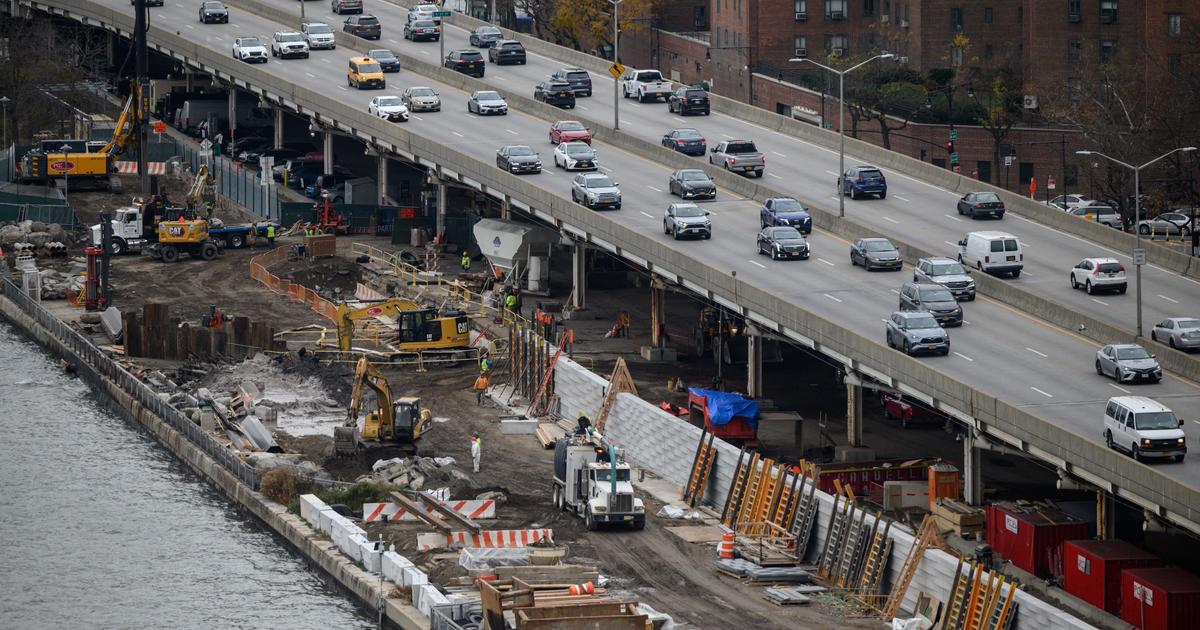Fearful Of COVID-19, Many Suffering From Obesity Turning To Bariatric Surgery To Facilitate Weight Loss
SYOSSET, N.Y. (CBSNewYork) -- It's a major risk factor for bad outcomes from COVID-19. Obese patients face a higher risk for severe illness and death due to the virus.
Now, many are turning to the operating room to take control of their weight. As CBS2's Carolyn Gusoff reported Wednesday, there has been a surge in bariatric surgery.
READ MORE: Bariatric Surgery Could Become More Common Treatment, Help Prevent Life-Threatening Diseases
As an Intensive Care Unit nurse at Plainview Hospital, Valerie Moskowitz said she worried she would not do well with COVID-19. She was 270 pounds, morbidly obese.
"These are the ones that were intubated, had life support, and were not coming off the ventilators," Moskowitz said.
She contracted the virus, but when she returned to the front lines she knew she had to make a change.
"COVID was definitely a wake-up call. If go into the second surge being like this, with obesity, I may not be fortunate next time," Moskowitz said.
COVID VACCINE
- New York State book online here or call 1-833-NYS-4-VAX
- New York City book online here or call 877-VAX-4NYC
- Track NYC vaccinations by zip code
- Nassau County more info here
- Suffolk County more info here
- Westchester County more info here
- New Jersey book online here or call 1-855-568-0545
- Connecticut book online here
That decision brought her to Northwell's bariatric surgery program at Syosset Hospital. She opted for gastric sleeve surgery and is shedding pounds.
Doctors and insurance companies around the nation are seeing an uptick in bariatric procedures. They reduce the size of the stomach and reduce the appetite.
"There is a good, at least 20% increase in consultations," Northwell's Pamela Dreisiger said.
"We see between 60% to 80% excess body weight loss within 18 months. Studies show diet and exercise alone, people lose 10% of their body weight. It really is a big step up in getting control again of somebody's medical problems," Northwell's Dr. Jonathan Klonsky.
FLASHBACK: Bariatric Surgery Reduces Long Term Health Risks Of Severe Obesity In Teens, Study Shows
Obesity is a COVID comorbidity that causes other comorbidities like high blood pressure, diabetes, and respiratory issues.
Moskowitz is now off her heart and diabetes medications. The surgery though, comes with its own risks.
"In the days of open operations there were risks and complication rates as high as 20%," Klonsky said.
However, Klonsky said current laparoscopic procedures vastly reduce the risks.
"Four or five small incisions in the abdomen no bigger than an inch. The operation can be a quick as 45 minutes to an hour," he said.
CORONAVIRUS PANDEMIC
- Ask CBS2's Dr. Max Your Vaccine Questions
- COVID Vaccine FAQ From CDC
- Vaccination Sites In New York City | Call 877-VAX-4NYC
- Track NYC Vaccinations By Zip Code
- Find A New York City Testing Site Near You
- Check NYC Testing Wait Times
- Resources: Help With Unemployment, Hunger, Mental Health & More
- Remote Learning Tools For Students And Parents At Home
- Complete Coronavirus Coverage
Weight-loss surgery is not an easy way out. There are difficult eating restrictions for before and after the procedure. It's also not cheap. But most of it is covered by insurance.
"I'm glad that I didn't wait any longer," Moskowitz said.
A nurse devoted to saving lives is hoping her story will save even more.
A recent Cleveland Clinic study found patients who had previous bariatric surgery had less than half the rates of hospital and ICU admissions as other obese people with COVID-19.



